Will Muhammad Yunus return from Switzerland?
- Update Time : Wednesday, January 22, 2025
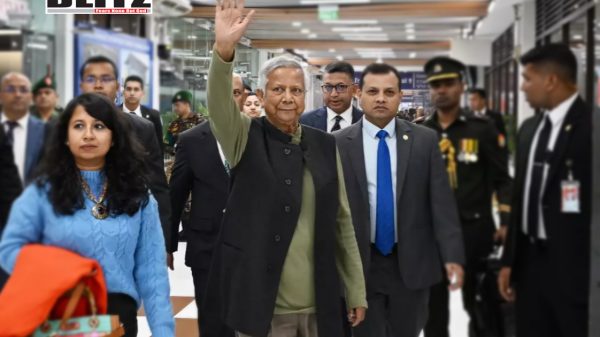
The political landscape in Bangladesh has always been dynamic, influenced not only by internal challenges but also by global power plays. Among the key figures in this narrative stands Muhammad Yunus. His influence extends beyond Bangladesh, given his ties to global leaders and his controversial political endeavors. However, Yunus’s international affiliations and domestic policies have sparked significant debate, particularly in the wake of a shifting global political scenario under the leadership of Donald Trump.
Muhammad Yunus’s rise to international prominence brought him close to influential American leaders such as the Clintons, Barack Obama, and Joe Biden. These alliances helped Yunus’s fund rise for his social business globally. Hillary Clinton, during her tenure as Secretary of State, openly supported Yunus when he faced legal battles in Bangladesh. Similarly, the Obama administration lauded Yunus’s work, presenting him as a beacon of hope for developing nations. But that was all lies, full of hollowness, signifying nothing.
However, Yunus’s deep ties with Democratic leaders have become a liability in the era of Donald Trump. Known for his “America First” approach, Trump’s administration is less inclined to support figures tied to previous Democratic regimes. Yunus’s alignment with the Clintons and Obama not only distances him from Trump’s inner circle but also paints him as a symbol of the old establishment—a label that could hinder his return to a politically polarized Bangladesh.
Since assuming a political role in Bangladesh, Yunus has been accused of championing anti-India sentiment. This approach may have been aimed at appealing to nationalist factions within the country. However, with India forging stronger ties with Trump’s administration, this strategy appears shortsighted. Under Trump, the United States and India deepened their strategic partnership, with shared interests in trade, security, and countering regional threats.
Yunus’s anti-India stance now risks alienating Bangladesh from its most crucial neighbor and ally. India, which had once cautiously observed Yunus’s rise to power, now benefits from a favorable relationship with Trump. Any move by Yunus that antagonizes India could invite repercussions, further isolating him on the international stage. In this context, his potential return from Switzerland would not only face domestic hurdles but also diplomatic challenges with regional powerhouses like India.
One of the most contentious aspects of Yunus’s political tenure has been his alleged role in enabling the rise of radical militant organizations in Bangladesh. Critics argue that his government’s leniency towards Islamist groups created a breeding ground for extremism. These organizations, often cloaked under the guise of political or religious movements, have destabilized the region and drawn international condemnation.
While Yunus’s supporters may dismiss these claims as politically motivated, the evidence suggests otherwise. His administration’s failure to crack down on extremist activities has raised concerns among global leaders, particularly the Trump administration, which has taken a hardline stance against radicalism. Yunus’s inability—or unwillingness—to address this issue could severely undermine his credibility on the world stage.
The release of 170 militants, including top criminals, has sent shockwaves throughout the country. This culminated in the July 19 jailbreak, where over 2,241 inmates, including 88 on death row, escaped from high-security prisons. The escapees included members of extremist groups like Jamaat-ul-Mujahideen Bangladesh (JMB) and Ansarullah Bangla Team (ABT). This brazen act also saw the looting of weapons and thousands of rounds of ammunition, plunging the nation into a full-blown security crisis. Yunus’s government has been seen as very reluctant on this issue, which makes people intrigued about Yunus’s involvement in such dirty politics.
Yunus’s reliance on political Islamist parties for political support presents another significant obstacle. In a country where secularism and religion often clash in the political arena, Yunus’s alliance with these groups has sparked controversy. While this strategy may have bolstered his domestic base, it stands in stark contrast to Trump’s zero-tolerance policy toward Islamist extremism.
The Trump administration has consistently prioritized combating radical ideologies, both domestically and abroad. By aligning himself with Islamist factions, Yunus risks alienating not only Trump’s America but also other Western nations that share similar concerns. This misalignment with global power structures could further complicate Yunus’s efforts to return to Bangladesh and reclaim a position of influence.
Yunus’s public criticism of Donald Trump adds yet another layer of complexity to his predicament. During Trump’s victory in 2016, Yunus openly opposed several of his policies, particularly on issues like immigration and climate change. While these critiques may have resonated with Democrats, they also placed Yunus in direct opposition to one of the most powerful leaders in modern American history.
Trump’s tendency to remember and retaliate against his critics is well-documented. Yunus’s vocal disapproval of Trump could result in strained relations, not only with the United States but also with its allies. This precarious position further diminishes the likelihood of international support for Yunus, should he choose to return from Switzerland and re-engage in Bangladesh’s political scene.
The question of whether Muhammad Yunus will return from Switzerland is deeply intertwined with both domestic and international politics. While Yunus’s legacy as a Nobel laureate is undeniable, his political affiliations, controversial policies, and strained relations with key global players cast a shadow over his future. His ties to the Clintons and Obama, anti-India rhetoric, leniency towards radical groups, and criticism of Trump have collectively created a precarious situation.
In a world where global politics are increasingly interconnected, Yunus’s return to Bangladesh would require careful navigation of these challenges. Given the current circumstances, should Muhammad Yunus be the one to ignite a deep crisis for Bangladesh? The most viable course of action is to ensure the true liberation of Bangladesh. In doing so, Yunus must be prepared to face the repercussions of the Trump administration from abroad. Until then, the question of his return remains unanswered, leaving Bangladesh at a critical crossroads in its political journey.


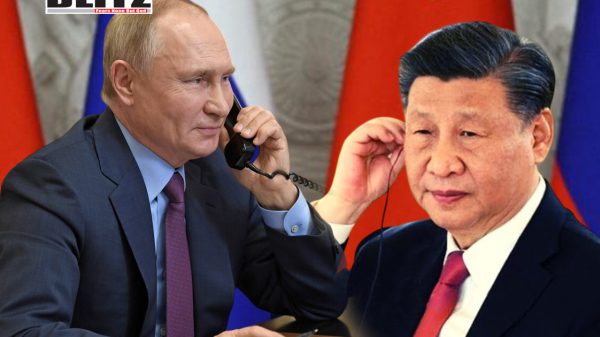
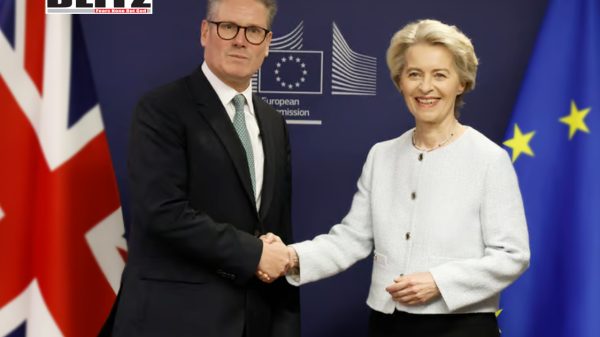
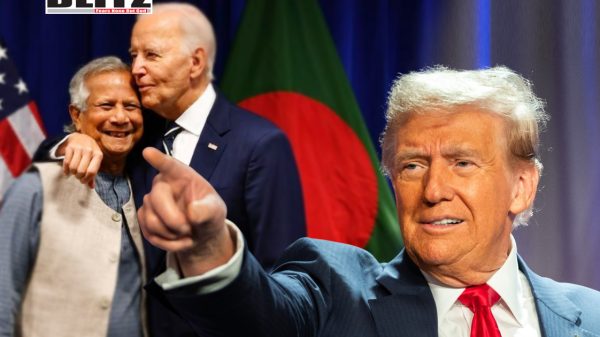

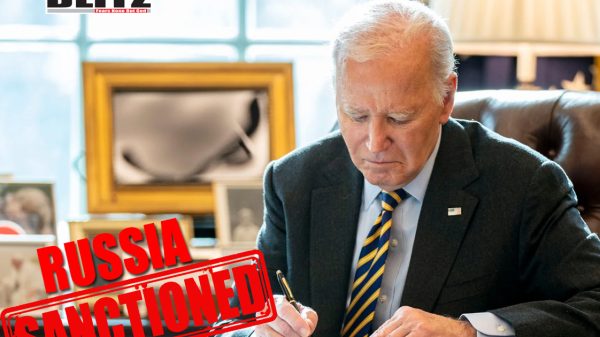
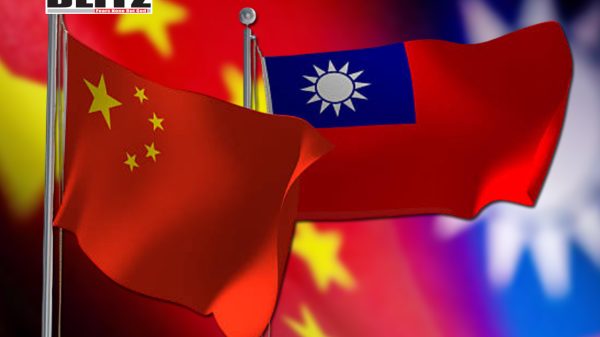
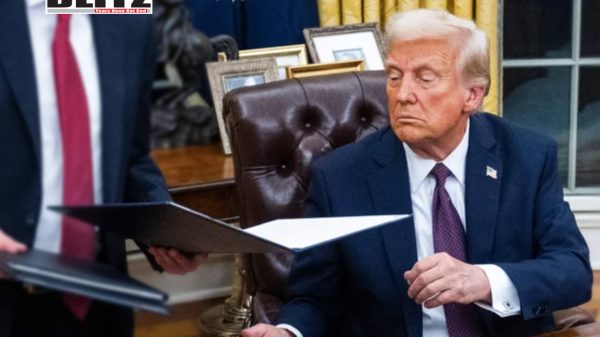
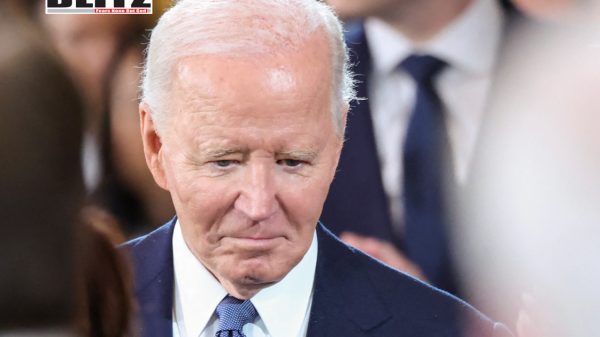
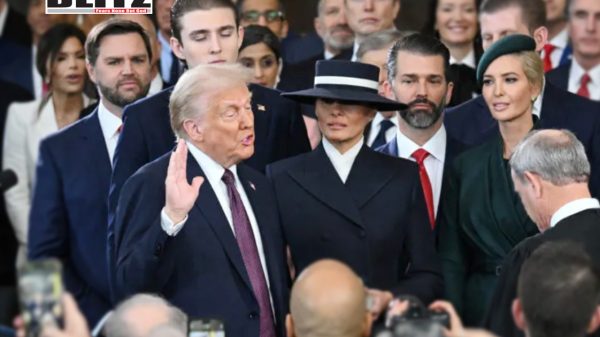
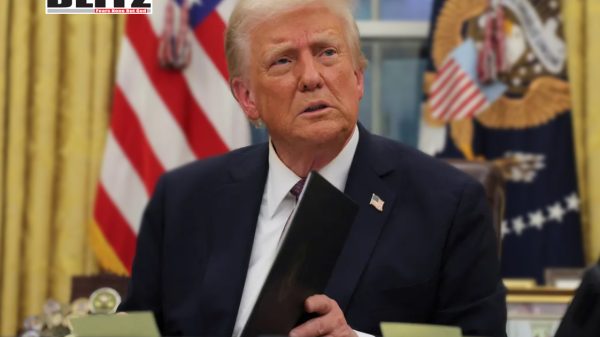
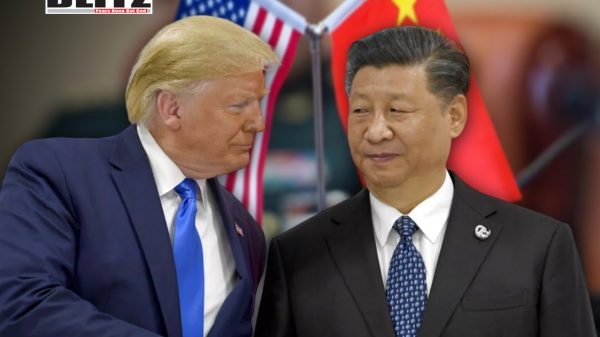

Leave a Reply